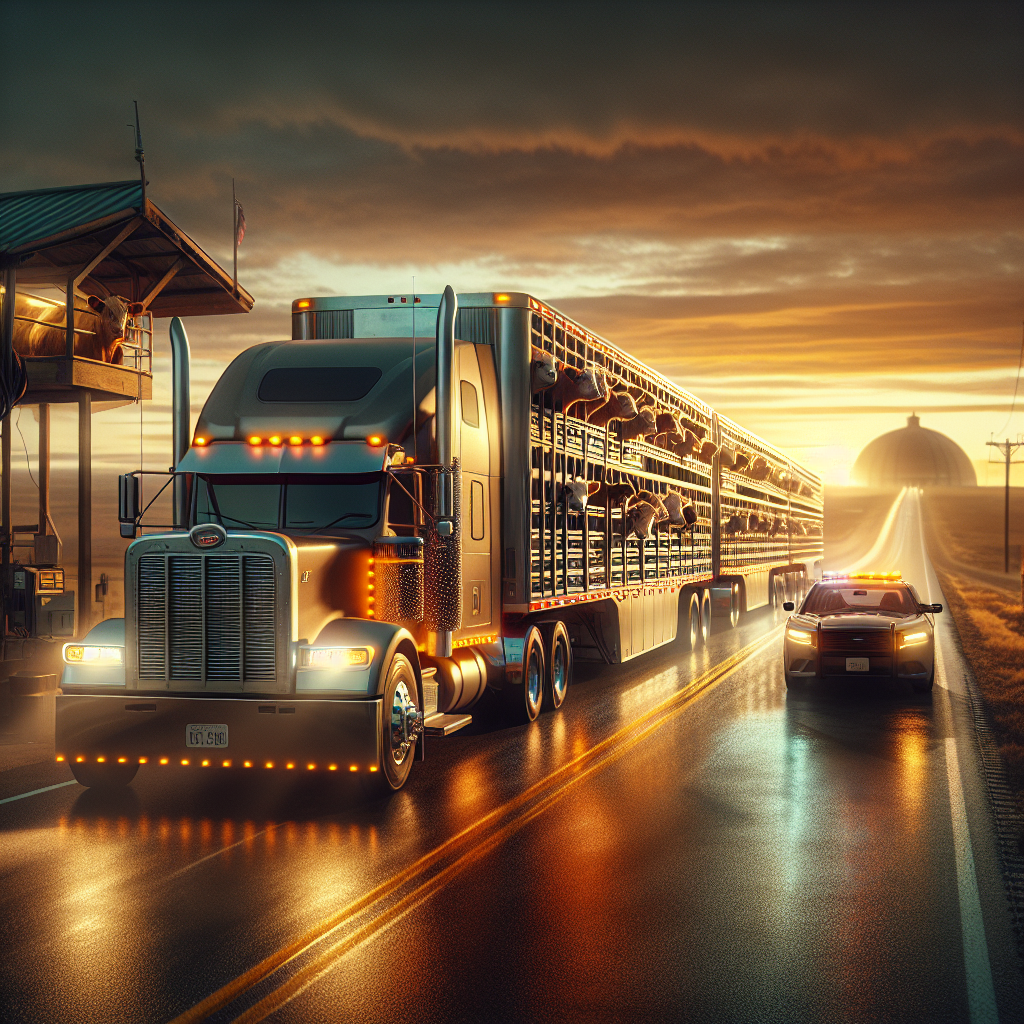Washington — A new House proposal would permanently exempt trucks hauling live animals from federal hours-of-service and electronic logging device requirements, opening a fresh battle line between agricultural shippers seeking flexibility and safety advocates warning of heightened fatigue risk on U.S. highways.
The Hauling Exemptions for Livestock Protection Act — the HELP Act (H.R. 4500) — was introduced on July 17, 2025, by Rep. Jeff Hurd, a Republican representing Colorado’s 3rd District. The bill was referred to the House Transportation and Infrastructure Committee and, the following day, to its Subcommittee on Highways and Transit.
As written, the HELP Act would exempt “covered livestock hauling vehicles” — including those transporting livestock, insects or aquatic animals — from all federal hours-of-service (HOS) limits and from the electronic logging device (ELD) mandate. The measure also extends the exemption to trucks running unladen while en route to pick up animals or returning from a delivery.
Current federal rules already carve out agriculture-specific flexibility. Drivers moving agricultural commodities are exempt from HOS within a 150 air-mile radius of the source; since November 15, 2021, livestock haulers can also use a 150 air-mile exemption at the end of trips near their delivery point. Once outside those radii, standard HOS and ELD requirements apply.
Industry groups have long pressed for broader relief, arguing animal welfare and biosecurity concerns can make mandated rest periods impractical when cattle, hogs or other live cargo are on board. In 2022, however, federal regulators denied a petition led by the National Cattlemen’s Beef Association (NCBA) for expanded exemptions, citing a lack of evidence that equivalent safety would be maintained. That history looms over the new House push.
NCBA has endorsed the HELP Act, asserting that pandemic-era regulatory waivers proved haulers could move livestock safely with added flexibility. The group says the bill would protect drivers from “burdensome” HOS and ELD mandates and better reflect on-the-ground realities faced by ranchers and carriers.
Safety organizations counter that wider carve-outs risk putting more fatigued drivers behind the wheel for longer stretches. The Commercial Vehicle Safety Alliance and allied groups have previously urged regulators not to expand agricultural exemptions, warning that fatigue-related crashes could rise if drivers operate far beyond standard limits.
The HELP Act also arrives amid a broader deregulatory turn at the U.S. Department of Transportation. On July 24, 2025, the Federal Motor Carrier Safety Administration (FMCSA) and the National Highway Traffic Safety Administration formally withdrew prior proposals to require speed limiters on heavy trucks, citing policy and data concerns in a joint Federal Register notice. The National Safety Council criticized the move and urged USDOT to reconsider, underscoring the split between industry and safety advocates on truck regulation.
Practically, the HELP Act’s HOS/ELD carve-out would mark a significant shift in compliance for carriers specializing in live-haul freight. By eliminating both the duty-time cap and electronic tracking mandate for covered trips — including empty repositioning legs — the bill would go well beyond today’s 150 air-mile origin-and-destination allowances embedded in federal rules. Supporters contend that flexibility would reduce animal stress and spoilage risk; opponents see an uneven playing field and elevated exposure to fatigue.
For now, the legislation remains at an early stage. With H.R. 4500 newly assigned to the Highways and Transit panel, the next step would be a subcommittee hearing or markup before any full committee action. Its prospects will likely hinge on whether sponsors can convince skeptical lawmakers that the measure can improve livestock transport without compromising road safety.
Sources: FreightWaves, Congress.gov, FMCSA, National Cattlemen’s Beef Association, National Safety Council
This article was prepared exclusively for TruckStopInsider.com. Republishing is permitted only with proper credit and a link back to the original source.





